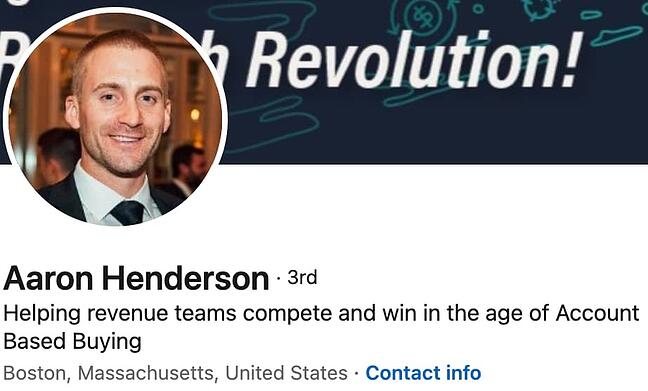
Entry-level consulting positions offer many benefits. It's possible to travel all-expenses paid and book your favourite boutique hotel while also enjoying the perks that come with a consulting career. The benefits are plentiful, and you can start a new career path, upgrade your current one, or make memories that will last a lifetime. These are just a few of the many benefits that consulting jobs offer. For more information on entry-level positions in consulting, please read the following.
Qualifications
While there are some qualifications that can make candidates more appealing to employers, the most important skill is experience. This includes diverse experience that includes business knowledge, team-building skills and analytical thinking. It is also helpful to have knowledge of financial systems and experience in business areas. Entry level jobs in consulting do not require any commercial experience. A high GPA is a better indicator of your chances of landing an interview and being hired by senior consultants.
In addition to a professional qualification, entry-level consultants will often have extensive experience in the business sector. Many consultants have completed a graduate-level program with a large, blue-chip business. Entry-level jobs will be offered to candidates with a wide range of experience. Other qualifications are required to be an entry-level consultant: These prerequisites must be met by all applicants.

Career path
Start your search for a entry-level consulting job if this is something you've wanted since childhood. The benefits and opportunities offered by entry-level jobs as consultants are numerous. Consultant jobs allow for extensive learning and offer a wide variety of work. Those who become consultants must have an understanding of marketing to target consumers and how to increase revenues while reducing costs. These skills can be transferred to other positions in the company once they have gained them. There are several entry-level consulting positions available, and you can start working for a client once you've graduated from college.
An analyst typically has one to two years experience. They can enter the consulting industry as an Associate Consultant or Business Analyst. A MBA or an advanced degree-holder might have the experience necessary to enter the consulting sector at a higher level. However, this is rare. Associates usually enter the industry at the Associate Consultant level, where they can work toward senior positions. Management consulting can be a great option for someone just starting their career.
Compensation
There are several ways to negotiate compensation for entry level jobs in consulting. High salaries are a common way for consulting firms to retain top talent and attract them. Sign-on bonuses are offered by some firms to encourage high-performing consultants. Others might require sign-on rewards in exchange for a bonus. Before you accept a job, be sure to read all details about the compensation. For entry-level jobs, compensation packages are often set by consulting firms.
If they're lucky, a first-year consultant could earn more than $60,000 These salaries are similar to other middle-class jobs. But consultants may earn only a few thousand dollars per annum, as they work long hours. You will be expected to work long hours, even if your job is a high-paying one. You can get performance bonuses worth up to 25 percent to 30% of your base salary.

Hourly rate
The hourly rate for consulting varies depending on the company. Hourly rates in the Big 4 consultancies can start at $350 but rise to $1,000. Entry-level professionals often work alongside partners. For smaller firms, there will be a mixture of resources available with hourly rates from $250 to $400. An hourly rate for independent management consulting firms is typically between $100 and $250. We'll be discussing the various types of consulting as well as the hourly rates.
BCG Consultants can expect to earn $161,700 per annum, which includes a $165,000 starting salary, $41,500 worth of bonuses and $9,000 in profit sharing. Other developed countries have slightly higher salaries, with Pakistan even with the UK and Russia. India's hourly rate is only $4 Bain & Company entry-level consultants can earn as much as $15 per hour.
FAQ
Who hires consultants?
Many organizations hire consultants to assist with projects. These consultants can be found in small and large businesses as well as government agencies, universities, educational institutions, non-profits, and education institutions.
While some consultants work for these companies, others are freelancers. In either case, the hiring process varies depending on the size and complexity of the project.
When hiring consultants, you will probably go through several rounds of interviews before choosing the person you think would be best suited for the position.
What can I expect of my consultant?
After you have selected your consultant, expect to hear from them within a few business days. They will usually ask for information about your company, including its mission, goals, products, services, budget, etc. After that, they will send you a proposal detailing the scope of work, expected time frame, fees and deliverables.
If everything goes as planned, then both parties will agree to a written contractual agreement. The type and content of the contract will vary depending on whether the relationship is employer-employee/employer-independent contractor.
If everything goes smoothly, the consultant can begin work immediately. The consultant will have full access to your files and resources. You'll also have access to their skills and knowledge.
Don't think that consultants are experts. It takes practice and hard work to become an expert in the field you are consulting. Your consultant should not assume that they know everything about you business.
What is the secret to modern consulting?
Accounting professionals were the first to become consultants. They helped companies manage their finances. Because they were skilled in managing financial information, they became "accounting consulting". The role soon expanded to include other areas, including human resources management.
The term "consultant" came from the French word for "to advise." It was used by businessmen to describe someone who could offer advice on how to run an organization. The word consultant is still used by most business owners to refer to any kind professional advisor.
Do I have to pay tax on consulting income
Yes, tax will be payable on any consultancy profits. The amount depends on how much you earn per year.
If you're self-employed, you can claim expenses on top of your salary, including rent, childcare, and food.
However, you can't deduct interest payments for loans, vehicle depreciation or the cost to purchase equipment.
Only 25% of your expenses can be claimed back if you make less than PS10,000 annually.
Even if you earn more than the threshold, you could still be taxed depending upon whether you are classified as a contractor and/or employee.
The tax system for employees is PAYE (pay-as-you earn), while VAT is applied to contractors.
Can anyone become a consultant
A consultant is someone who assists you in achieving your goals by offering advice and suggestions on how to achieve it faster, cheaper, and so forth.
Consultants can help you resolve problems, make decisions, and negotiate with other people.
Consultants are often hired to help with specific tasks and projects.
Consultants are usually paid hourly, daily or per project.
Statistics
- According to IBISWorld, revenues in the consulting industry will exceed $261 billion in 2020. (nerdwallet.com)
- Over 50% of consultants get their first consulting client through a referral from their network. (consultingsuccess.com)
- WHY choose me: Why your ideal client should choose you (ex: 10 years of experience and 6-week program has helped over 20 clients boost their sales by an average of 33% in 6 months). (consultingsuccess.com)
- 67% of consultants start their consulting businesses after quitting their jobs, while 33% start while they're still at their jobs. (consultingsuccess.com)
- On average, your program increases the sales team's performance by 33%. (consultingsuccess.com)
External Links
How To
How Do I Find A Good Consultant?
Understanding your needs is the first step to finding the right consultant. What do you need them to do for your website? Do you want them to optimize your site to rank higher in search engines? Maybe you are looking for someone to point out any problems with your current web host. After you have decided what services you need, it is time to start looking at potential companies. Many consultants claim that they can offer these services. But only a small percentage of them are able to deliver. How do you choose the right consultant? Here are some considerations when choosing a consultant.
-
Get referrals. This is probably the best way to choose a consultant. You shouldn't hire someone you haven’t met before as they will probably charge you too much. But you also don't want to work with someone whose reputation isn't solid. It's great if you get recommendations from people you trust. You might also be able to find reviews online even if there are no referrals. Look for testimonials and case studies where clients have used your service.
-
Ask around. Many people are not aware of the benefits of hiring a consultant. They think that since they're currently doing fine, they don't need to make changes. This is often false. Even if you have great results right now you probably haven't been keeping pace with new technologies or trends. And if you're relying on outdated methods, you'll miss out on opportunities to grow your business. It is always worthwhile to ask around for recommendations of good consultants.
-
Check their qualifications. You need to verify their qualifications when you are searching for a consultant. It doesn't matter if they are qualified for the task or not; make sure they are knowledgeable in the field.
-
Find out what kind of projects they specialize in. This is false. Some areas require specific types of training or education. If you are looking for someone to create a WordPress theme, then you will not want to hire someone who isn't a specialist in Drupal. The same goes for graphic design, programming languages, etc. Ask the designer what kind of projects they have worked on in the past.
-
Find out what their charges are. You don't want a consultant who charges too much. You don't necessarily want to pay too low, but you shouldn't either. There are many types of consultants. There are some that charge an hourly fee, while others may bill per job. Knowing exactly what you're paying upfront will save you money down the road.
-
Find out what they offer. Are they available for free consultations They will be able to offer you guidance on setting up your own system. Is there a guarantee that your site will rank higher after working with them? If you don’t like the information you receive during your consultation, you can cancel it without penalty.
-
Also, ask if discounts are available for multiple months and years. Many consultants offer discounts for longer periods. Although you do not have to commit to a year, it is possible to take advantage of any offers they may offer.